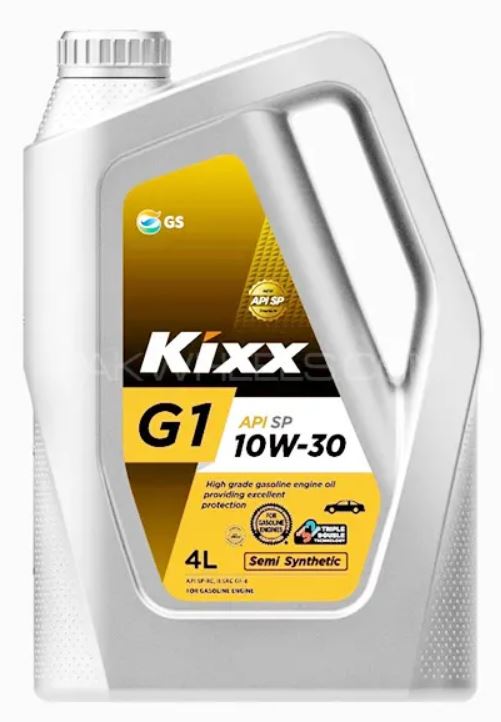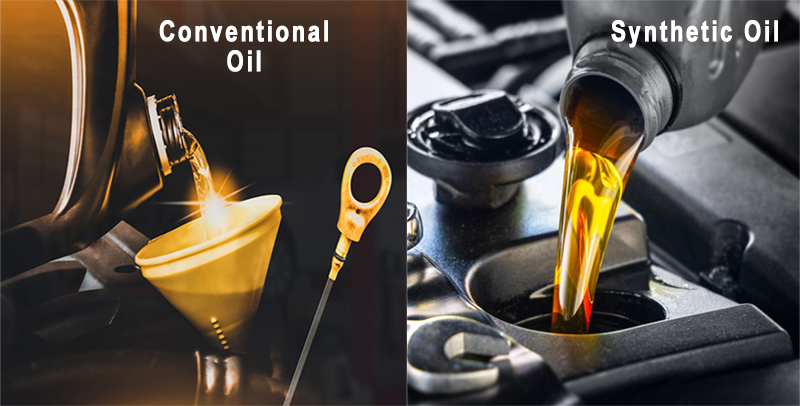Choosing the right engine oil is essential for maintaining engine performance and longevity. Among the most common types of motor oil are conventional oil and synthetic oil. Understanding their differences, benefits, and applications can help vehicle owners make informed decisions for better engine protection and efficiency.
What is Conventional Oil?
Conventional oil is derived from crude petroleum and undergoes basic refining processes. It contains natural impurities and lacks the advanced chemical modifications that synthetic oils offer. This type of oil is suitable for older engines and vehicles with simple lubrication requirements.
 Advantages of Conventional Oil
Advantages of Conventional Oil
- Affordable compared to synthetic options.
- Suitable for older engines with minimal performance demands.
- Works well in mild driving conditions.
For more information on the right oil for your vehicle, check out our Conventional Oil guide.
What is Synthetic Oil?
Synthetic oil is chemically engineered to provide superior lubrication, reduced engine wear, and enhanced performance. It is free from impurities and designed to withstand extreme temperatures, making it ideal for modern vehicles and high-performance engines.
 Types of Synthetic Oil
Types of Synthetic Oil
1. Fully Synthetic Oil
Fully synthetic oil offers maximum protection and efficiency. It is designed to provide optimal lubrication, reduce friction, and improve fuel economy.
- Enhances engine longevity.
- Provides excellent performance in extreme temperatures.
- Reduces deposits and sludge formation.
Find out the best Fully Synthetic Oil for your vehicle.
2. Semi-Synthetic Oil
Semi-synthetic oil is a blend of conventional and synthetic oils, offering a balance between cost and performance. It provides better protection than conventional oil while being more affordable than fully synthetic options.
 Improved protection against engine wear.
Improved protection against engine wear.- Better resistance to temperature changes than conventional oil.
- More affordable than fully synthetic oil.
Explore the advantages of Semi-Synthetic Oil for your car’s needs.
Synthetic vs. Conventional Oil Difference
Understanding the Synthetic vs. Conventional Oil Difference is crucial in selecting the right engine oil. Here’s a comparison:
| Feature | Conventional Oil | Synthetic Oil |
|---|---|---|
| Base Material | Natural crude oil | Chemically engineered compounds |
| Purity Level | Contains impurities | Highly refined, fewer impurities |
| Performance in Temperature Extremes | Less stable | High stability in extreme temperatures |
| Engine Protection | Basic protection | Superior protection and longevity |
| Oil Change Interval | Shorter intervals | Longer intervals, reducing maintenance costs |
| Fuel Efficiency | Moderate | Improved fuel efficiency |
Which Oil Should You Choose?
- If you own an older vehicle and drive in mild conditions, conventional oil may be sufficient.
- If you seek better performance, fuel efficiency, and longevity, synthetic oil is the best option.
- For a budget-friendly yet performance-driven choice, semi-synthetic oil is a great middle ground.
To get expert advice on choosing the best oil, check our Synthetic Oil guide.
Conclusion
Whether you choose conventional oil, semi-synthetic oil, or fully synthetic oil, understanding their properties helps in making an informed decision. While Synthetic vs. Conventional Oil Difference is significant, selecting the right type depends on driving conditions, vehicle type, and performance requirements. Regular oil changes and using manufacturer-recommended oil ensure long-term engine health and efficiency.













